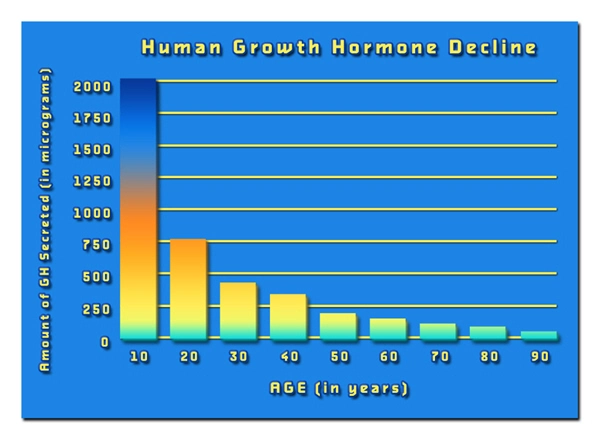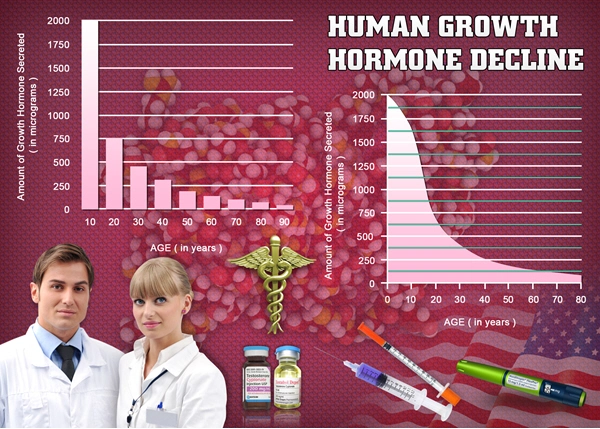Introduction
Prostate health is a critical concern for American men, with conditions such as benign prostatic hyperplasia (BPH) and prostate cancer posing significant health risks. Recent research has begun to explore the intricate relationship between stress and prostate health, suggesting that psychological stress may influence prostate pathology through psychoneuroendocrine pathways. This article delves into a prospective cohort study that examines the impact of stress on prostate health in American men, providing insights into the mechanisms that may underlie this association.
Study Design and Methodology
The study in question is a prospective cohort study involving a diverse group of American men aged 40 to 70 years. Participants were followed over a period of five years, during which they provided detailed information on their stress levels, lifestyle factors, and underwent regular prostate health assessments. Stress was measured using validated psychometric tools, while prostate health was evaluated through clinical examinations, PSA levels, and biopsy results when necessary.
Psychoneuroendocrine Pathways: The Stress-Prostate Connection
The study's findings highlight the role of psychoneuroendocrine pathways in mediating the effects of stress on prostate health. Chronic stress is known to activate the hypothalamic-pituitary-adrenal (HPA) axis, leading to increased production of cortisol and other stress hormones. These hormones can, in turn, influence prostate cell growth and function. The study found that men with higher stress levels exhibited elevated PSA levels and were more likely to develop BPH and prostate cancer over the follow-up period.
Impact of Stress on Prostate-Specific Antigen (PSA) Levels
One of the key findings of the study was the association between stress and PSA levels. PSA, a protein produced by the prostate gland, is commonly used as a marker for prostate health. The study revealed that men experiencing higher levels of stress had significantly higher PSA levels compared to those with lower stress. This suggests that stress may contribute to prostate inflammation and cellular changes that elevate PSA, potentially leading to misdiagnosis or delayed diagnosis of prostate conditions.
Stress and the Risk of Benign Prostatic Hyperplasia (BPH)
The study also explored the relationship between stress and the development of BPH, a condition characterized by the enlargement of the prostate gland. The results indicated that men with chronic stress were at a higher risk of developing BPH. The proposed mechanism involves stress-induced hormonal imbalances that promote prostate cell proliferation and glandular enlargement. This finding underscores the importance of stress management in the prevention and management of BPH.
Stress and Prostate Cancer: A Potential Link
Perhaps the most concerning finding of the study was the potential link between stress and prostate cancer. The data showed that men with higher stress levels had an increased risk of developing prostate cancer. The psychoneuroendocrine pathways may play a role in this association, as chronic stress could lead to a dysregulated immune response and increased oxidative stress, both of which are implicated in cancer development. These findings suggest that stress reduction strategies could be beneficial in reducing the risk of prostate cancer.
Implications for Clinical Practice and Public Health
The study's findings have significant implications for clinical practice and public health. Healthcare providers should consider incorporating stress assessment and management into routine prostate health evaluations. Public health initiatives aimed at promoting stress reduction techniques, such as mindfulness, exercise, and social support, could play a crucial role in improving prostate health outcomes among American men.
Conclusion
The prospective cohort study provides compelling evidence of the impact of stress on prostate health in American men, highlighting the role of psychoneuroendocrine pathways in this relationship. The findings underscore the need for a holistic approach to prostate health that addresses both physiological and psychological factors. By recognizing and managing stress, men may be able to reduce their risk of developing prostate-related conditions and improve their overall quality of life.

- Prostate Health in Aging Men: Understanding Changes and Management Strategies [Last Updated On: March 8th, 2025] [Originally Added On: March 8th, 2025]
- Prostate Cancer Survivorship: Managing Health and Well-being Post-Treatment [Last Updated On: March 16th, 2025] [Originally Added On: March 16th, 2025]
- Prostate Cancer's Psychological Impact and Holistic Care Strategies for American Men [Last Updated On: March 17th, 2025] [Originally Added On: March 17th, 2025]
- Optimal Exercise Practices for Enhancing Prostate Health in American Men [Last Updated On: March 17th, 2025] [Originally Added On: March 17th, 2025]
- Prostate Cancer Screening: Navigating Controversies and Making Informed Decisions [Last Updated On: March 18th, 2025] [Originally Added On: March 18th, 2025]
- Prostate Health: Understanding Family History and Genetic Risks for American Men [Last Updated On: March 18th, 2025] [Originally Added On: March 18th, 2025]
- Understanding BPH: Prevalence, Symptoms, Diagnosis, and Management in American Men [Last Updated On: March 18th, 2025] [Originally Added On: March 18th, 2025]
- Prostate Health: Understanding Symptoms, Screening, and Lifestyle Impact on American Men [Last Updated On: March 18th, 2025] [Originally Added On: March 18th, 2025]
- Prostate Cancer Treatments: Side Effects and Management Strategies for American Men [Last Updated On: March 20th, 2025] [Originally Added On: March 20th, 2025]
- Prostate Health: Understanding Risks and Enhancing Wellness in American Men [Last Updated On: March 20th, 2025] [Originally Added On: March 20th, 2025]
- Dietary Strategies for Enhancing Prostate Health in American Men [Last Updated On: March 20th, 2025] [Originally Added On: March 20th, 2025]
- Prostate Health and Cardiovascular Disease: Shared Risks and Integrated Care Strategies [Last Updated On: March 20th, 2025] [Originally Added On: March 20th, 2025]
- Stress Impact on Prostate Health: Management Strategies for American Men [Last Updated On: March 21st, 2025] [Originally Added On: March 21st, 2025]
- Prostate Cancer's Impact on Fertility: Treatment Effects and Preservation Options [Last Updated On: March 22nd, 2025] [Originally Added On: March 22nd, 2025]
- Prostate Health: Benefits and Types of Exercise for American Men [Last Updated On: March 22nd, 2025] [Originally Added On: March 22nd, 2025]
- Prostate Cancer and Radiation Therapy: Benefits, Advances, and Considerations for American Males [Last Updated On: March 22nd, 2025] [Originally Added On: March 22nd, 2025]
- Active Surveillance: A Key Strategy for Managing Low-Risk Prostate Cancer in American Men [Last Updated On: March 22nd, 2025] [Originally Added On: March 22nd, 2025]
- Prostate Health: Foods to Avoid for Prevention of Cancer and BPH [Last Updated On: March 23rd, 2025] [Originally Added On: March 23rd, 2025]
- Sleep Quality's Impact on Prostate Health: Hormones and Practical Sleep Tips [Last Updated On: March 24th, 2025] [Originally Added On: March 24th, 2025]
- Targeted Therapy for Prostate Cancer: Insights for American Men's Health [Last Updated On: March 24th, 2025] [Originally Added On: March 24th, 2025]
- Hormone Therapy in Prostate Cancer: Benefits, Challenges, and Future for American Men [Last Updated On: March 24th, 2025] [Originally Added On: March 24th, 2025]
- Chemotherapy's Role and Impact on Prostate Cancer in American Men [Last Updated On: March 24th, 2025] [Originally Added On: March 24th, 2025]
- Prostate Cancer and Cryotherapy: A Minimally Invasive Treatment Option for American Men [Last Updated On: March 25th, 2025] [Originally Added On: March 25th, 2025]
- Antioxidants and Prostate Health: Diet, Supplements, and Lifestyle for American Males [Last Updated On: March 25th, 2025] [Originally Added On: March 25th, 2025]
- Selenium's Role in Enhancing Prostate Health: Benefits and Dietary Sources [Last Updated On: March 25th, 2025] [Originally Added On: March 25th, 2025]
- Green Tea Benefits for Prostate Health in American Males [Last Updated On: March 25th, 2025] [Originally Added On: March 25th, 2025]
- Prostate and Bone Health: Critical Links and Management Strategies for American Males [Last Updated On: March 25th, 2025] [Originally Added On: March 25th, 2025]
- Vitamin D's Crucial Role in Prostate Health for American Males [Last Updated On: March 25th, 2025] [Originally Added On: March 25th, 2025]
- HIFU: A Promising Non-Surgical Option for Prostate Cancer Treatment [Last Updated On: March 25th, 2025] [Originally Added On: March 25th, 2025]
- Alcohol Consumption's Impact on Prostate Health: Risks and Benefits for American Men [Last Updated On: March 25th, 2025] [Originally Added On: March 25th, 2025]
- Hydration's Crucial Role in Maintaining Prostate Health for American Males [Last Updated On: March 25th, 2025] [Originally Added On: March 25th, 2025]
- Brachytherapy: Targeted Prostate Cancer Treatment Options and Considerations [Last Updated On: March 26th, 2025] [Originally Added On: March 26th, 2025]
- Heavy Metals' Impact on Prostate Health: Risks, Mechanisms, and Prevention Strategies [Last Updated On: March 26th, 2025] [Originally Added On: March 26th, 2025]
- Zinc's Crucial Role in Prostate Health for American Males [Last Updated On: March 26th, 2025] [Originally Added On: March 26th, 2025]
- Photodynamic Therapy: A Promising, Less Invasive Treatment for Prostate Cancer in American Men [Last Updated On: March 26th, 2025] [Originally Added On: March 26th, 2025]
- Omega-3 Fatty Acids: Enhancing Prostate Health in American Males [Last Updated On: March 26th, 2025] [Originally Added On: March 26th, 2025]
- Prostate Cancer: Stages, Grades, and Treatment Options for American Men [Last Updated On: March 26th, 2025] [Originally Added On: March 26th, 2025]
- Immunotherapy: A New Hope for Prostate Cancer Treatment in American Men [Last Updated On: March 26th, 2025] [Originally Added On: March 26th, 2025]
- Environmental Factors and Prostate Health: Risks and Preventive Measures for American Males [Last Updated On: March 27th, 2025] [Originally Added On: March 27th, 2025]
- Air Pollution's Impact on Prostate Health: Risks and Protective Measures for American Men [Last Updated On: March 27th, 2025] [Originally Added On: March 27th, 2025]
- Prostate Cancer Support Groups: Emotional Aid and Empowerment for American Men [Last Updated On: March 27th, 2025] [Originally Added On: March 27th, 2025]
- Prostate Cancer Management: Understanding Watchful Waiting and Its Implications [Last Updated On: March 27th, 2025] [Originally Added On: March 27th, 2025]
- Proton Therapy: A Targeted Approach to Treating Prostate Cancer in American Men [Last Updated On: March 27th, 2025] [Originally Added On: March 27th, 2025]
- Pesticides and Prostate Health: Risks, Mechanisms, and Preventive Measures for American Males [Last Updated On: March 27th, 2025] [Originally Added On: March 27th, 2025]
- Lycopene's Role in Enhancing Prostate Health: Prevention and Management Strategies [Last Updated On: March 27th, 2025] [Originally Added On: March 27th, 2025]
- Chemoprevention Strategies for Prostate Cancer Prevention in American Men [Last Updated On: March 27th, 2025] [Originally Added On: March 27th, 2025]
- Plastics and Prostate Health: Risks, Research, and Reduction Strategies for American Males [Last Updated On: March 28th, 2025] [Originally Added On: March 28th, 2025]
- Chronic Inflammation's Impact on Prostate Health in American Males: Prevention and Management [Last Updated On: March 28th, 2025] [Originally Added On: March 28th, 2025]
- Palliative Care's Vital Role in Enhancing Prostate Cancer Patients' Quality of Life [Last Updated On: March 28th, 2025] [Originally Added On: March 28th, 2025]
- CyberKnife Radiosurgery: Precision Treatment for Prostate Cancer in American Men [Last Updated On: March 29th, 2025] [Originally Added On: March 29th, 2025]
- Vitamin E's Role in Prostate Health: Benefits and Dietary Sources [Last Updated On: March 29th, 2025] [Originally Added On: March 29th, 2025]
- Prostate Cancer Surgery: Benefits, Risks, and Choosing the Right Approach [Last Updated On: March 30th, 2025] [Originally Added On: March 30th, 2025]
- EMFs and Prostate Health: Risks, Mechanisms, and Mitigation Strategies for American Males [Last Updated On: March 31st, 2025] [Originally Added On: March 31st, 2025]
- Robotic Surgery for Prostate Cancer: Benefits, Procedure, and Recovery Insights [Last Updated On: March 31st, 2025] [Originally Added On: March 31st, 2025]
- Prostate Cancer and Focal Therapy: A Targeted Approach for American Men [Last Updated On: April 2nd, 2025] [Originally Added On: April 2nd, 2025]
- Cruciferous Vegetables: Enhancing Prostate Health in American Males [Last Updated On: April 2nd, 2025] [Originally Added On: April 2nd, 2025]
- Endocrine Disruptors and Prostate Health: Risks, Exposure, and Mitigation Strategies [Last Updated On: April 6th, 2025] [Originally Added On: April 6th, 2025]
- Laparoscopic Surgery for Prostate Cancer: Benefits, Procedure, and Recovery for American Men [Last Updated On: April 8th, 2025] [Originally Added On: April 8th, 2025]
- Industrial Chemicals and Prostate Health: Risks and Mitigation for American Males [Last Updated On: April 8th, 2025] [Originally Added On: April 8th, 2025]
- Prostate Cancer Management: The Role and Future of Neoadjuvant Therapy [Last Updated On: April 9th, 2025] [Originally Added On: April 9th, 2025]
- Palliative Surgery for Prostate Cancer: Enhancing Quality of Life for American Men [Last Updated On: April 9th, 2025] [Originally Added On: April 9th, 2025]
- Soy's Role in Enhancing Prostate Health: Benefits and Dietary Integration [Last Updated On: April 9th, 2025] [Originally Added On: April 9th, 2025]
- Salvage Therapy: A Second Chance for American Men with Recurrent Prostate Cancer [Last Updated On: April 10th, 2025] [Originally Added On: April 10th, 2025]
- Bisphosphonates: Enhancing Bone Health in American Men with Prostate Cancer [Last Updated On: April 11th, 2025] [Originally Added On: April 11th, 2025]
- Pomegranate: A Natural Ally for Prostate Health in American Males [Last Updated On: April 11th, 2025] [Originally Added On: April 11th, 2025]
- Prostate Health: Medications, Risks, and Lifestyle Management for American Males [Last Updated On: April 12th, 2025] [Originally Added On: April 12th, 2025]
- Flaxseed: A Natural Approach to Enhancing Prostate Health in American Males [Last Updated On: April 13th, 2025] [Originally Added On: April 13th, 2025]
- Adjuvant Therapy in Prostate Cancer: Hormonal, Radiation, and Chemotherapy Roles [Last Updated On: April 13th, 2025] [Originally Added On: April 13th, 2025]
- Shift Work's Impact on Prostate Health: Risks and Mitigation Strategies for American Males [Last Updated On: April 15th, 2025] [Originally Added On: April 15th, 2025]
- Radium-223: Targeted Therapy for Metastatic Prostate Cancer in American Men [Last Updated On: April 17th, 2025] [Originally Added On: April 17th, 2025]
- Prostate Health Risks and Strategies for Long-Haul Truckers [Last Updated On: April 18th, 2025] [Originally Added On: April 18th, 2025]
- RANK Ligand Inhibitors: A Promising Treatment for Advanced Prostate Cancer [Last Updated On: April 18th, 2025] [Originally Added On: April 18th, 2025]
- Turmeric's Potential Benefits for Prostate Health in American Males [Last Updated On: April 18th, 2025] [Originally Added On: April 18th, 2025]
- Enzalutamide: Revolutionizing Prostate Cancer Treatment and Enhancing Quality of Life [Last Updated On: April 18th, 2025] [Originally Added On: April 18th, 2025]
- Denosumab's Role in Managing Bone Health for Advanced Prostate Cancer Patients [Last Updated On: April 18th, 2025] [Originally Added On: April 18th, 2025]
- Heavy Physical Work's Impact on Prostate Health: Risks and Mitigation for American Males [Last Updated On: April 19th, 2025] [Originally Added On: April 19th, 2025]
- Ginger's Role in Supporting Prostate Health: Benefits and Dietary Integration [Last Updated On: April 19th, 2025] [Originally Added On: April 19th, 2025]
- Abiraterone: A New Hope in Treating Advanced Prostate Cancer in American Men [Last Updated On: April 19th, 2025] [Originally Added On: April 19th, 2025]
- Prostate Health: Importance of Regular Check-ups for Men Over 50 [Last Updated On: April 21st, 2025] [Originally Added On: April 21st, 2025]
- Tomatoes and Prostate Health: Lycopene's Role in Cancer Prevention [Last Updated On: April 21st, 2025] [Originally Added On: April 21st, 2025]



List of USA state clinics - click a flag below for blood testing clinics.
Word Count: 621


















































